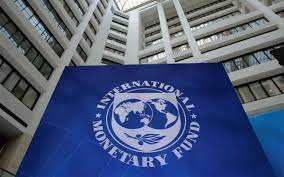The International Monetary Fund (IMF) has disclosed that import restrictions and foreign currency shortages in Nigeria and other African countries are still hindering businesses.
In its Regional Economic Outlook for Sub-Saharan Africa entitled “A Tepid and Pricey Recovery,” the organization mentioned that these obstacles could impact the post-pandemic recovery in terms of companies’ profitability in the region. The IMF also highlighted that the recovery period for the region is occurring amidst global uncertainty and shocks, with increasing interest rates leading Sub-Saharan African (SSA) countries to shift from critical capital investments to debt servicing.
The IMF noted that this shift results in lower educational achievements and heightened food insecurity in the regions. Referring to a report indicating that only 65 percent of school children in SSA complete their primary and secondary education compared to the global average of 87 percent, it also pointed out the escalating food insecurity in the region, particularly in Nigeria and the Democratic Republic of Congo.
The organization emphasized that numerous countries, including Angola, Chad, Ethiopia, Kenya, and Nigeria, are grappling with challenges such as foreign currency shortages and import restrictions, which are complicating business activities. This situation is unfolding just as companies in the region are recovering their pre-pandemic profitability.
The liquidity crunch is jeopardizing the growth prospects of the region’s future generations, as there is a significant lack of funds to address extensive development requirements, exacerbated by the pandemic’s lasting effects. For example, nearly three out of ten school-age children are not attending primary and secondary education, with only around 65 percent completing primary school, in contrast to the global average of 87 percent.
As of 2023, an estimated 140 million people across the region, including a substantial number in the Democratic Republic of the Congo and Nigeria, are facing acute food insecurity, with policymakers encountering limitations in their capacity to respond effectively due to restricted fiscal space.
Nigeria has implemented specific trade strategies to support local production, self-reliance, and job creation. In 2015, the Central Bank of Nigeria (CBN) announced restrictions on importers of 43 items from accessing foreign exchange on the official market. In October 2019, former President Muhammad Buhari ordered the closure of all land borders across the country to deter smuggling and enhance local production of products where Nigeria has a competitive edge. Nevertheless, this policy conflicts with the essence of the African Continental Free Trade Agreement (AfCTA), which came into effect less than a year later in June 2020.
